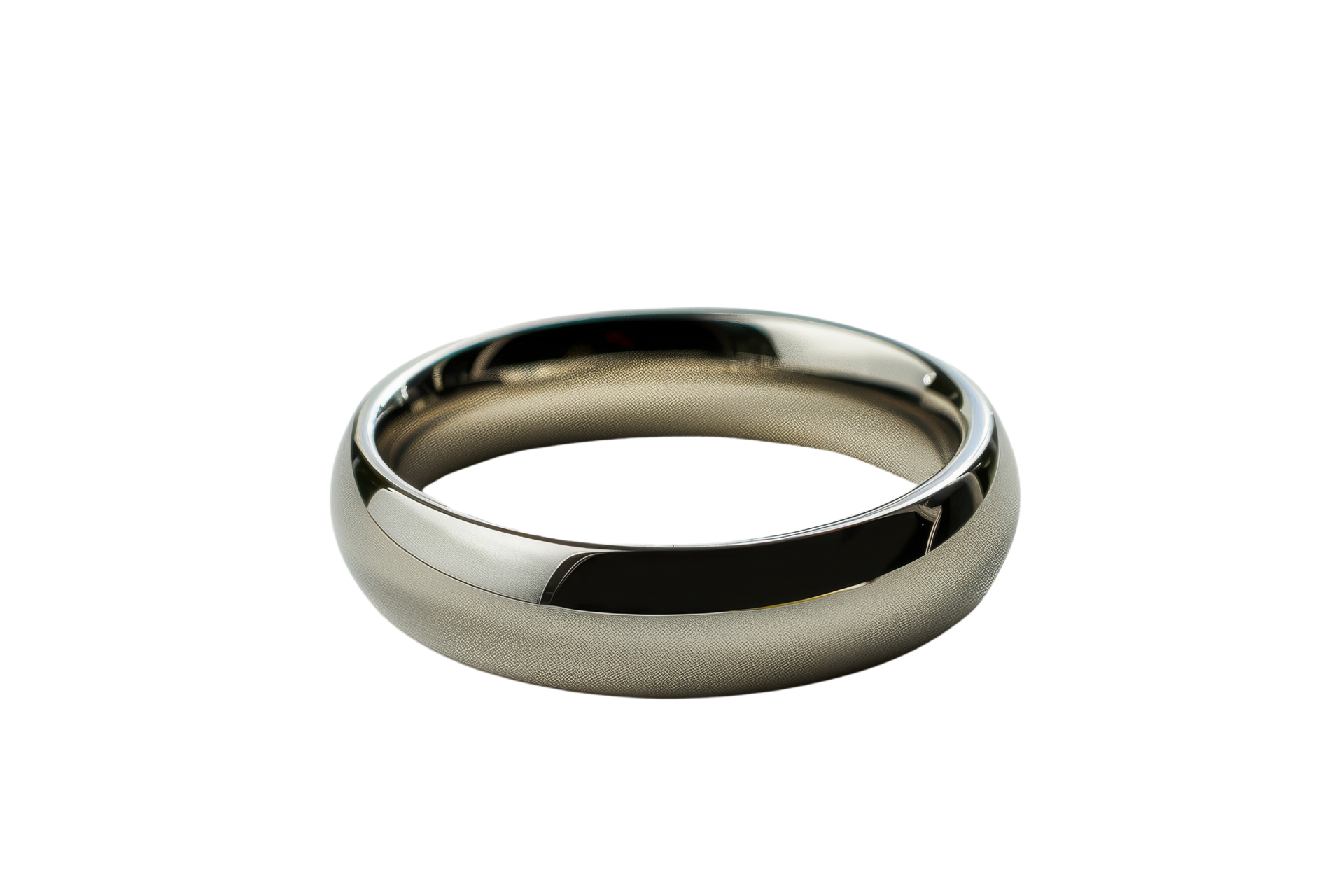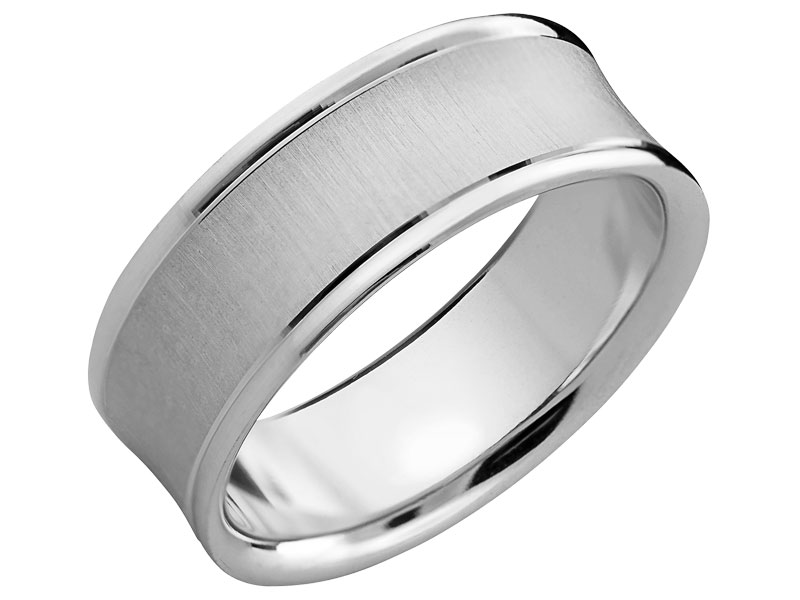Silver Wedding Band: A Timeless Symbol Of Love And Commitment
Choosing the right silver wedding band is an essential decision for couples as they embark on their lifelong journey together. The significance of this piece of jewelry goes beyond mere aesthetics; it symbolizes unity, love, and devotion. As you explore the world of silver wedding bands, it's important to understand the factors that make them unique and enduring.
A silver wedding band is not just a piece of jewelry but a representation of the love and commitment shared between two individuals. Whether you're planning your special day or looking for a meaningful gift, understanding the intricacies of silver wedding bands can help you make an informed choice. From styles to materials, there's much to consider when selecting the perfect band.
This comprehensive guide will take you through everything you need to know about silver wedding bands, including their history, types, care tips, and more. By the end of this article, you'll have all the tools necessary to choose a band that reflects your personal style and celebrates your love story.
Read also:Jennifer Bolt Unveiling The Remarkable Career And Achievements
Table of Contents
- The History of Silver Wedding Bands
- Types of Silver Wedding Bands
- Benefits of Choosing Silver Wedding Bands
- Popular Styles of Silver Wedding Bands
- Materials Used in Silver Wedding Bands
- How to Care for Your Silver Wedding Band
- Setting a Budget for Silver Wedding Bands
- Tips for Shopping for Silver Wedding Bands
- Customizing Your Silver Wedding Band
- Frequently Asked Questions About Silver Wedding Bands
The History of Silver Wedding Bands
Wedding bands have been a part of human culture for thousands of years, with their origins tracing back to ancient civilizations. The Egyptians were among the first to use rings as symbols of eternal love, and silver wedding bands emerged as a popular choice due to their affordability and beauty. Over time, the tradition of exchanging rings during weddings spread across the globe, evolving into the practice we know today.
Silver, with its lustrous appearance and durability, has long been favored for crafting wedding bands. Historically, silver wedding bands were often adorned with intricate designs and engravings, making each piece unique. Today, modern techniques allow for even more customization, while still maintaining the timeless appeal of silver.
Significance of Silver in Wedding Bands
Silver is valued not only for its aesthetic qualities but also for its symbolism. It represents purity, clarity, and strength—qualities that align perfectly with the essence of marriage. Additionally, silver is a versatile metal that complements various styles, making it an ideal choice for couples seeking elegance and sophistication.
Types of Silver Wedding Bands
When it comes to silver wedding bands, there is a wide range of options available to suit different preferences and budgets. Understanding the types of bands can help you make a more informed decision when selecting one for yourself or your partner.
Plain Silver Bands
Plain silver bands are simple yet elegant, making them a classic choice for couples who prefer understated designs. These bands often feature a smooth surface with no additional embellishments, allowing the natural beauty of silver to shine through.
Engraved Silver Bands
Engraved silver bands add a personal touch to the traditional silver wedding band. Engravings can include names, dates, or meaningful phrases, creating a band that is both beautiful and sentimental.
Read also:Kelly Osbournes Journey To Grammy Success
Textured Silver Bands
For those who appreciate a bit of texture, textured silver bands offer a unique look. These bands may feature patterns such as braided designs, hammered finishes, or other decorative elements that enhance their visual appeal.
Benefits of Choosing Silver Wedding Bands
Choosing a silver wedding band offers several advantages that make it an excellent option for many couples:
- Affordability: Silver is generally more affordable than other precious metals like gold or platinum, making it accessible to a wider range of budgets.
- Versatility: Silver pairs well with various styles and can be easily customized to suit individual tastes.
- Durability: While silver is softer than some other metals, proper care ensures that it remains beautiful for years to come.
- Hypoallergenic: Pure silver is less likely to cause allergic reactions, making it a safe choice for individuals with sensitive skin.
Popular Styles of Silver Wedding Bands
The style of your silver wedding band plays a crucial role in expressing your personality and taste. Here are some of the most popular styles currently trending:
Contemporary Designs
Contemporary silver wedding bands often feature modern, sleek lines and minimalist aesthetics. These bands are perfect for couples who appreciate clean and simple designs.
Traditional Designs
Traditional silver wedding bands maintain classic elements, such as smooth finishes and timeless shapes. These bands are ideal for those who prefer a more conventional look.
Artisan-Crafted Bands
Artisan-crafted silver wedding bands are handmade by skilled artisans, resulting in unique and intricate designs. These bands often incorporate cultural or regional influences, adding depth and character to the piece.
Materials Used in Silver Wedding Bands
Not all silver wedding bands are created equal. The type of silver used can affect the band's appearance, durability, and cost. Below are some common materials used in crafting silver wedding bands:
- Sterling Silver: A popular choice due to its high silver content (92.5%) and affordability.
- Fine Silver: Contains 99.9% silver, offering a purer and shinier finish but is softer and more prone to tarnishing.
- Plated Silver: A base metal coated with a layer of silver, providing a more affordable option but requiring regular maintenance.
How to Care for Your Silver Wedding Band
To ensure your silver wedding band remains in pristine condition, proper care and maintenance are essential. Here are some tips for keeping your band looking its best:
- Store your band in a cool, dry place away from direct sunlight.
- Avoid exposing your band to chemicals such as perfumes, lotions, or cleaning agents.
- Regularly clean your band using a soft cloth and mild soap solution to remove dirt and tarnish.
- Consider having your band professionally polished periodically to restore its shine.
Setting a Budget for Silver Wedding Bands
When shopping for a silver wedding band, it's important to establish a budget that aligns with your financial goals. While silver bands are generally more affordable than other metals, prices can vary based on factors such as design complexity, material quality, and customization options. Researching and comparing prices from different retailers can help you find the best value for your money.
Tips for Shopping for Silver Wedding Bands
Shopping for a silver wedding band can be an exciting yet overwhelming experience. Here are some tips to make the process smoother:
- Visit multiple jewelers to compare styles and prices.
- Ask about warranties and return policies to ensure peace of mind.
- Consider trying on different styles to see which feels most comfortable.
- Look for reviews and ratings from previous customers to gauge the reliability of the seller.
Customizing Your Silver Wedding Band
Customizing your silver wedding band allows you to create a piece that is truly one-of-a-kind. From choosing unique engravings to incorporating special gemstones, there are numerous ways to personalize your band. Working with a skilled jeweler can help bring your vision to life, ensuring that your band reflects your unique love story.
Frequently Asked Questions About Silver Wedding Bands
Q: Do silver wedding bands tarnish easily?
A: Yes, silver can tarnish over time due to exposure to air and moisture. However, regular cleaning and proper storage can minimize tarnishing.
Q: Can I resize a silver wedding band?
A: Resizing a silver wedding band is possible, but it depends on the design and construction of the band. Consult with a professional jeweler for advice specific to your band.
Q: Are silver wedding bands suitable for everyday wear?
A: Yes, silver wedding bands are durable enough for everyday wear, provided they are cared for properly. Avoiding exposure to harsh chemicals and removing the band during physical activities can extend its lifespan.
Q: What is the difference between sterling silver and fine silver?
A: Sterling silver contains 92.5% silver and 7.5% other metals, making it more durable than fine silver, which is 99.9% pure silver. Fine silver is shinier but softer and more prone to tarnishing.
Conclusion
Silver wedding bands have stood the test of time as symbols of love and commitment. Their affordability, versatility, and beauty make them an excellent choice for couples seeking a meaningful yet stylish piece of jewelry. By considering factors such as style, material, and care, you can select a silver wedding band that perfectly represents your union.
We invite you to share your thoughts and experiences with silver wedding bands in the comments below. Additionally, feel free to explore our other articles for more insights into the world of wedding jewelry. Your feedback and engagement are invaluable in helping us provide the best content possible.


